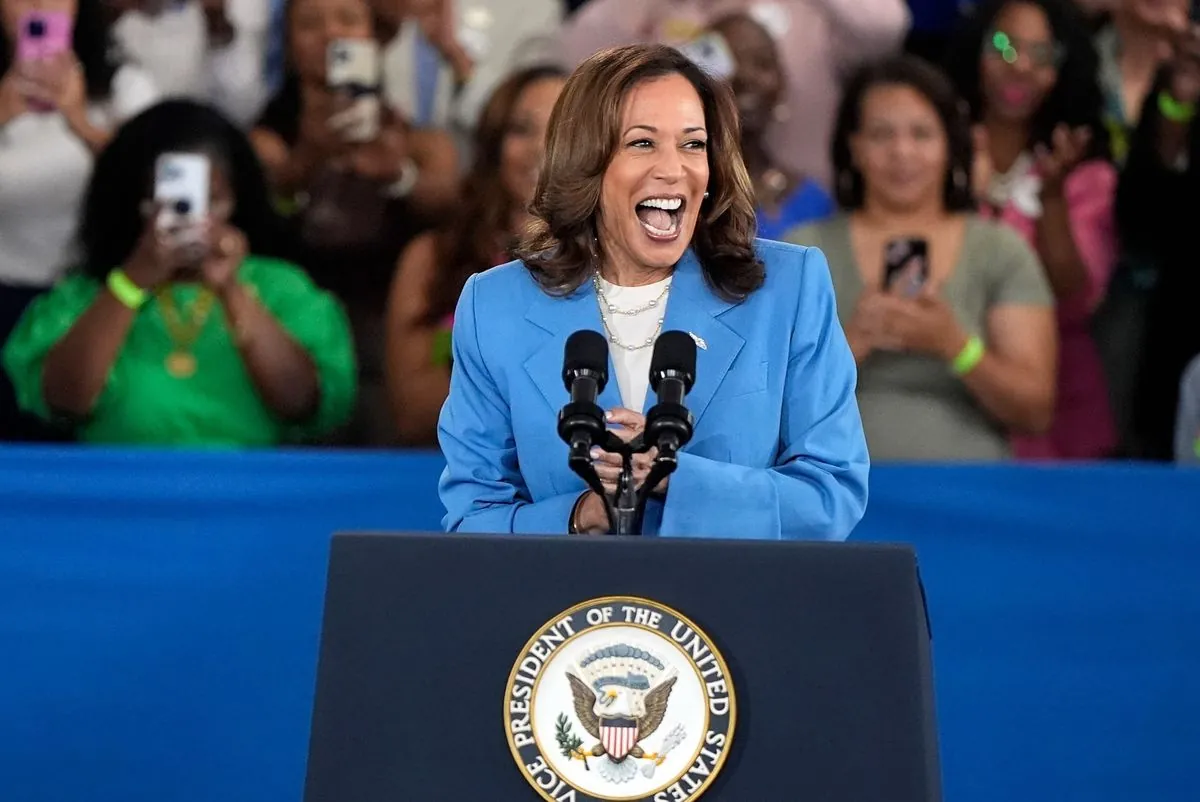Harris to Revise Democrat Capital Gains Tax Plan, Diverging from Biden's Proposal
Vice President Kamala Harris plans to modify the Democratic Party's approach to capital gains taxation, departing from President Biden's original post-election economic strategy. The revision aims to address opposition to the proposed $5 trillion tax increase.

Vice President Kamala Harris is reportedly planning to revise the Democratic Party's stance on capital gains taxation, marking a significant shift from President Joe Biden's post-election economic strategy. This modification comes in response to opposition faced by the administration's proposed $5 trillion federal tax increase, which was intended to fund various policies in a potential second Democratic term.
According to reports, Harris intends to lower the proposed top rate for capital gains tax, originally set at 44.6% in Biden's plan. This adjustment reflects the ongoing debate surrounding capital gains taxation, which has been a contentious issue in US politics for decades.
Capital gains tax, introduced in the United States with the Revenue Act of 1913, is levied on profits realized from the sale of non-inventory assets. Currently, the top long-term capital gains tax rate stands at 20% for most assets, significantly lower than the rate proposed in Biden's original plan.
Despite the proposed reduction in the top rate, Harris is expected to maintain certain key aspects of Biden's plan. This includes aligning capital gains tax with income tax for households earning more than $1 million annually. Additionally, the policy of taxing unrealized gains for Americans with assets exceeding $100 million is likely to be retained.

The concept of taxing unrealized gains has sparked controversy among high-net-worth individuals, including tech mogul Elon Musk. Critics argue that this approach could force premature asset sales to cover tax obligations. It's worth noting that the US tax code distinguishes between short-term (held less than a year) and long-term capital gains, with different tax treatments for each.
Harris's focus on capital gains and addressing tax "loopholes" for the wealthiest echoes similar plans proposed by the UK Labour Party. This parallel underscores the global nature of debates surrounding capital gains taxation, with different countries adopting varied approaches. For instance, some nations like New Zealand and the Netherlands do not have a separate capital gains tax.
The Vice President's revised plan may have implications for her other policy priorities. Harris has proposed increases in child tax credits and income tax credits, as well as a new scheme to assist first-time homebuyers with deposits. She has also suggested a federal ban on "price gouging" by grocery retailers, a proposal that has drawn comparisons to Soviet-era price controls.
As the debate over capital gains taxation continues, it's important to consider its potential impact on investment behavior and economic growth. Some economists argue that lower capital gains taxes can stimulate economic activity, while others emphasize the need for a more progressive tax system.
"We must ensure that our tax system is fair and equitable, while also promoting economic growth and opportunity for all Americans."
As Harris prepares to unveil new policies to support American small businesses, the ongoing discussion about capital gains taxation reflects the complex balance between revenue generation, economic stimulation, and equitable taxation in modern economic policy.


































